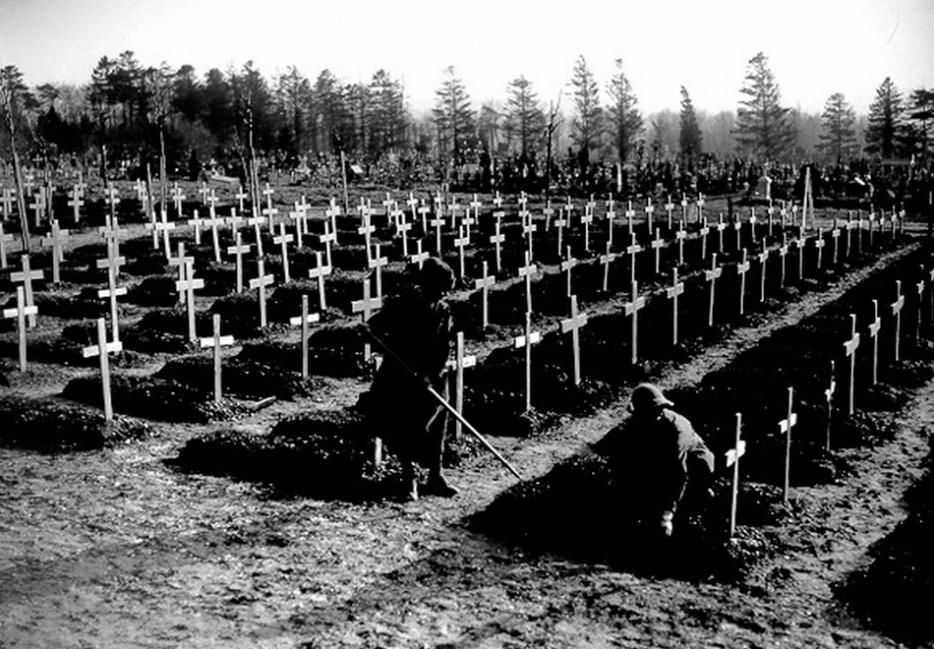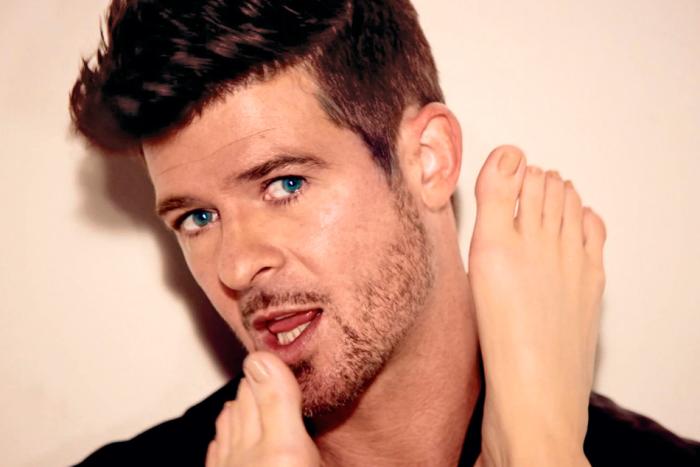Shells were falling on the men and horses near Passchendaele. “The barns were a heap of burning rubble,” Timothy Findley wrote in his recently re-issued 1977 novel The Wars. “So was the Signals Office. In the centre of the yard, there was just a smoking hole.” Of his protagonist, Findley wrote: “It appeared that only Robert had survived.” It’s an experience that is repeated over the course of the novel—when the mud, smoke, and gas clear from around the dead bodies, Robert is the sole survivor.
In June of this year, ISIS captured a unit of Iraqi soldiers, separated them by religious denomination, and shot the Shiites one by one. The Tikrit massacre, as it has come to be called, killed an as yet unknown number of people; Human Rights Watch has confirmed between 560 and 770, though ISIS claims 1700. Of these, only one—a 23-year-old named Ali Hussein Kadhim—survived.
In July of this year, a man broke into a house in suburban Houston and tied a couple and their five children to chairs before shooting them one by one. The eldest daughter, 15-year-old Cassidy Stay, survived. (In a recent speech, she quoted Harry Potter, saying, “Happiness can be found even in the darkest times if one only remembers to turn on the light.” J.K. Rowling sent her a handwritten note along with a Hogwarts acceptance letter and a wand.)
It seems as if these people are the lucky ones. The militants shot the man next to you, not you. The gunman murdered your sister, but you lived. Both Stay and Kadhim survived by playing dead—lying among the bodies with their eyes closed, covered in other people’s blood.
Sufferers are often plagued with nightmares and depression; they go over and over events of the past. Sometimes they wonder if they could have saved others by behaving differently; they have trouble relating to family and friends who cannot share their experience.
The term “survivor’s guilt” entered the psychiatric lexicon in the 1960s. Psychiatrists working with Holocaust survivors were struck by the pervasive sense of shame their patients felt simply for being alive. In an interview with psychologist Aaron Hass in the 1990s, a woman tells of being spared the gas chamber at 16 only to be pushed into a room of women who started screaming, “Why is she alive when my daughter was gassed!” At the end of The Wars, a nurse who survived World War I says, “I am ashamed to be alive. I am ashamed of life.” Findley eventually allows his protagonist to die, and the reader can’t help but be grateful.
Sufferers are often plagued with nightmares and depression; they go over and over events of the past. Sometimes they wonder if they could have saved others by behaving differently; they have trouble relating to family and friends who cannot share their experience.
A sort of reverse iteration of the Problem of Evil is the Problem of Luck. Not why do bad things happen to good people, but why do good things happen to people of no special distinction? As much as our society claims to be secular, our justice system, and—for most of us—our personal lives are still grounded in an expectation of reward for good behaviour and punishment for bad. Survivor’s guilt is a reaction to the senselessness of being singled out for reward for no reason. In the case both of Kadhim and Stay, there’s an extra layer of loneliness. To be among the few survivors is terrible enough; to be the sole survivor is the cruelest kind of good luck.
Earlier this year, the documentary Sole Survivor had its television debut on CNN, after having won the Midwest Independent Film Festival’s award for Best Feature Film. It follows George Lamson, a man who, in 1987 at the age of 17, was the only person to survive a plane crash in which 71 other passengers died, including his father. The film opens with footage of George on the nightly news just after the crash, a teenager being congratulated on his survival. He looks, against all the odds, happy.
Then voiceover cuts in; it’s George as an adult. “Being placed as a miracle boy or someone who is a recipient of a miracle—people look at you and think that you’ve got a destiny; there’s something God saved you for. There’s a special reason for you to be here. And that’s unrealistic.” We see George in the present-day: an overweight man with bank teller hair and glasses, buttoning himself into a red coat with hearts, spades, and clubs on its buttons—he’s an attendant at a casino.
Survivors bear more than the ordinary share of guilt simply for all the people they can’t be. Who among us hasn’t felt like a waste of opportunity, given the gift of a human lifetime with all its vast potential?
Over the course of the film, George tracks down another sole survivor of an airplane crash—Bahia Bakari, a French teenager. Her plane crashed into the ocean in 2009, when she was 13. Bahia survived by clinging to a piece of wreckage in the ocean for nine hours. The other 152 people, including her mother, died. “There are people who say if you’re a survivor you should probably do great things,” Bahia says. She’s a quiet, withdrawn girl, the oldest of four. “But when you’re 13, 14 years old, you can’t really think about doing anything so important. It puts me under a lot of pressure.”
When George and Bahia meet, it’s clear that despite the language barrier they have both found someone who truly understands them. Bahia becomes fast friends with George’s daughter, who is the same age and has dealt her whole life with George’s survivor guilt. Bahia’s father cries as he thanks George for helping Bahia out of her isolation. In 2010, Bakari published a book about her experience—Moi Bahia, la miraculée (the French press dubbed her “the miraculous girl”). Rumour says that Steven Spielberg approached her about making a movie of her life story, but she refused.
Bahia wants to be a doctor. George is devoting his energy to raising his daughter. They aren’t necessarily living extraordinary lives. Survivors bear more than the ordinary share of guilt simply for all the people they can’t be. Who among us hasn’t felt like a waste of opportunity, given the gift of a human lifetime with all its vast potential? But most of us are luckier than we are good.
Every week, Linda Besner reads a new book and writes on a tangentially related topic.






